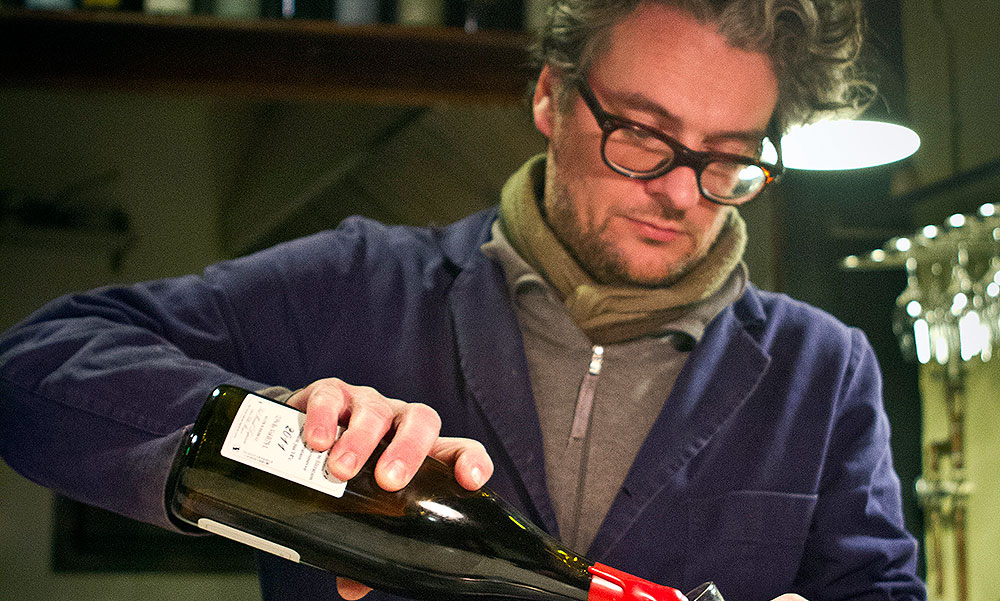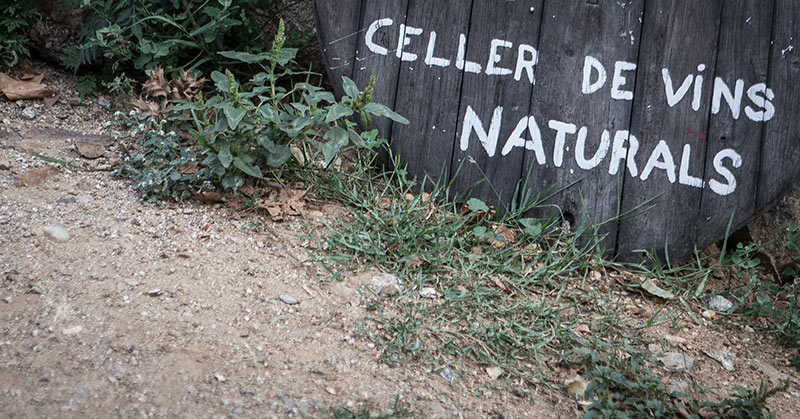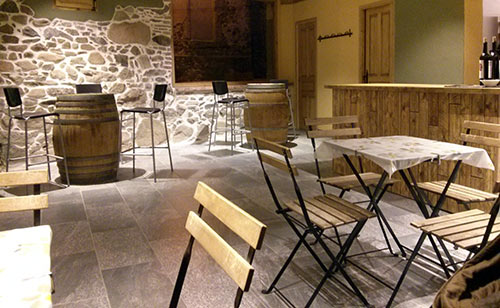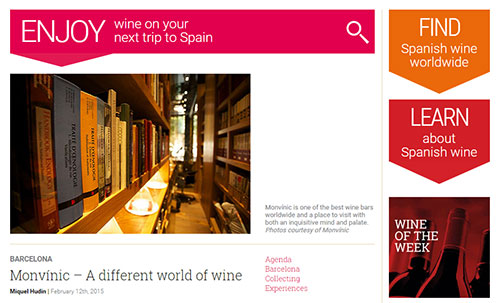Several weeks ago a “Rendez-vous” event at the Moritz Bar à Vins was packed to capacity and spilling out the doors. Every in-the-know sommelier and wine expert in Barcelona was there, comprising a heaving, warm bodied mass to see two winemakers: Joan Ramón Escoda and Laureano Serres. Easygoing and laid back, they’ve become two of the star winemakers in the burgeoning “natural” wine scene that’s been gathering momentum in Catalonia. Riding this wave of newfound interest, the authors of the “Vinum Nature” guide are holding a fair of organic, natural, and biodynamic wines on May 13th at Cúpula las Arenas. Also, two new bars have appeared, specializing in natural wines, and popular wine blogger, Joan Gómez Pallarès is writing a book devoted to “natural” wines to be released at the end of the year.
All of this begs the question of, what the hell are “natural” wines? Wines are made from grapes after all. They’re not some chemical concoction so how can they be anything other than “natural”? Are they the same as organic and biodynamic? And of course, there’s the most important question of, why should we care?
The most simplistic definition of a “natural” wine is one that is a non-interventionist wine. While wine has been with us for probably as long as taxes and prostitution, it’s only been in the last few decades that mass production has changed winemaking a great deal via technology and has taken it away from traditional, natural techniques. Basically, natural wine is one where the pressed grape juice is poured in to a tank or barrel, allowed to ferment naturally from the ambient yeasts in the air, aged as long as it takes, and then bottled all with no sulfites or other chemicals added along the way.
This differs from organic and biodynamic by essentially taking all chemicals and technology out of the process, although there is still some overlap in defining these methods given that natural wines need to be from vineyards farmed in an organic or biodynamic method, but certification of either isn’t required. To quote a French winemaker, “organic and biodynamic are the tools, natural is the philosophy”. In the end though, we as consumers need to take a lot on trust and it forces wine drinkers to have more of a direct relationship with the winemaker.
Of course, there’s a big difference between making a lot of wine using modern methods and making what natural wine proponents deem as “technological” wine wherein no end of manipulation is conducted in the cellar to bend the grape juice in to a cheap product or alternatively a profile designed to receive big scores from wine critics. And all this is really what the natural wine movement is fighting — industrialization and homogenization. They want to go back to tasting the grapes and the locale/terroir in the bottles.
While this movement has gained a great deal of popularity in Catalonia and especially with the sommeliers in Barcelona, it’s not really a new thing. There have been some pockets of winemakers that have resisted heavy modernization such as the “vi de pagès” makers up in Calonge of Baix Empordà. Wineries such as Mas Molla are producing great, rustic bottles of wine, but they haven’t been doing it via fully certified cellars so you won’t find any of their bottles in the stores, only at the wineries. Cellars such as Escoda Sanahuja, Laureano Serres, and others have changed the game a great deal, producing fully commercialized wines that you can find in local shops and restaurants.
Our northerly, French speaking neighbors have been practicing these methods for many years and have over 400 natural wine producers, so it’s not surprising then that the first shop specializing in natural wines in Barcelona, “l’Ànima del Vi” was opened in Gràcia seven years ago by Frenchman Benoît Valée. He put on several annual fairs of natural wines over the years called, “Naturala Vinis” and worked quite hard to promote them, but ultimately closed his shop at the end of 2012 and opened a natural wine bar with the same name in Born on Carrer Vigatans. This will be joined soon by another natural wine bar on Carrer Princesa to be opened by the owner of distribution company Cuvée 3000, Joan València.
They fight something of an uphill battle as there has been a great deal of confusion around natural wines for some time and it’s really only recently that some of the fog has lifted due to the crusades of American wine writer, Alice Feiring and others like recent natural wine advocate Josep Roca of Celler de Can Roca.
So, are these wines truly better or more authentic and worthy of your euros? The only way to know is to try them yourselves. In addition to the fair in May, as well as the bars in Born, there are bottles to be tried at many places in the city such as Monvínic in Eixample, Bar à Vins in Sant Antoni and others like Imprevist in Raval, and El Pla or Bar Pla in Gòtic. Keep in mind that they’re definitely a different style of wine, but it may be just the new take on the grape that you’re looking for.




